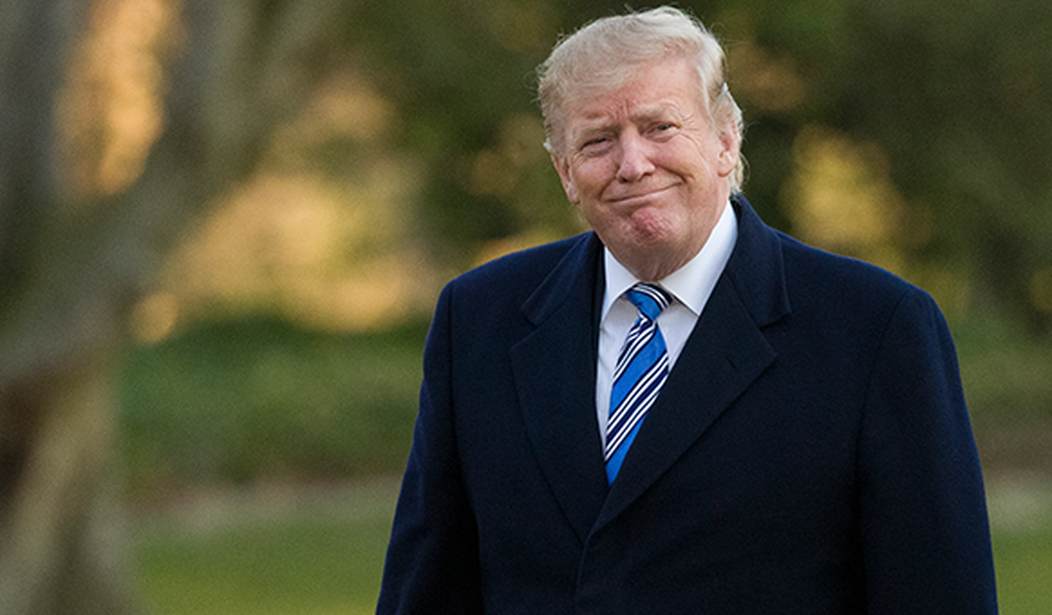“Small ball” is often a sound strategy when it comes to baseball. Taking a slow, methodical approach that emphasizes incremental gains is a good way to get runners on base and then score runs.
But that doesn’t mean it works in all fields at all times. Take foreign policy.
Sometimes cautious, small-ball tactics are the way to go. Other times, it pays to try a bolder, less conventional approach.
That’s certainly what animates President Trump when it comes to his foreign policy thinking. For him, America’s foreign policy is based on protecting and advancing the interests of the American people. This is what I define as an “America first” foreign policy.
Yes, first — but not only. As President Trump has stressed, an “America First” foreign policy does not mean an “America Only” foreign policy.
Contrary to what the president’s detractors would have you believe, he listens, thinks, and then makes up his own mind. He considers alternative views. But when he makes a decision, he expects his whole team to get on board and to implement that decision.
Trump the businessman, then the candidate, and now the president, has written that when facing a challenge, you think big and go into negotiations (or even discussions) as a disrupter. By coming up with new ideas that are far outside the boundaries of what’s considered possible, you effectively change not only the debate, but the whole range of options within that debate.
That makes a lot of people uncomfortable. But by doing so, President Trump is expanding the debate so that the final decision goes beyond the conventional boundaries of discussion.
Recommended
This is a new approach for many in the think tank community and in the government. And most people view anything new with alarm. But that doesn’t mean it’s a mistake to try it.
Such an approach means, yes, that President Trump is a tough negotiator. As he has said, “Without friction, there can be no lift.”
The president is not alone in his view. Preston Moon, founder and chairman of the Global Peace Foundation, called for an “out of the box” approach to Korean unification during a speech at the recent Global Peace Convention 2019.
The Trump administration, Moon noted, “made Korea the top international priority of the U.S. for the first time since the Korean War. It imposed biting sanctions and galvanized global support to support those sanctions.” That’s a big change to a bolder approach.
On a related note, the president is also leaving his mark on other areas of foreign policy — like U.S.-China relations.
I was a staunch advocate for China’s accession to the World Trade Organization 20 years ago. Since then, U.S. trade with China, in both directions, has been growing.
China’s market reforms have lifted hundreds of millions out of poverty. But China should be a more rules-abiding stakeholder in the global trading system.
It would be politically convenient to attribute the current friction over trade issues to the Trump administration. But the problems the president highlights have been on the table in our relationship for years: subsidies, market access, SOEs, IPR theft, forced technology transfers and others.
We must continue to seek every opportunity to pursue dialogue and interaction with Beijing, so that we can try to eliminate sources of misunderstanding, reduce the risks of miscalculation, and offer China the opportunity to uphold and strengthen the true international order.
As one of Washington’s congenital optimists, I do believe that progress can be made on both these fronts. But I think it’s going to take some of the creative disruption that the president specializes in.
All of those who deal with these issues on a bilateral or multilateral basis should not underestimate the commitment of the Trump administration.
As Dr. Moon has said, “Now is the time for far-reaching vision, wise leadership, and bold action.” Fortunately, President Trump has already gotten the memo.

























Join the conversation as a VIP Member